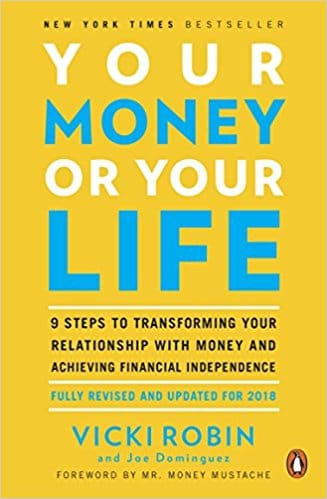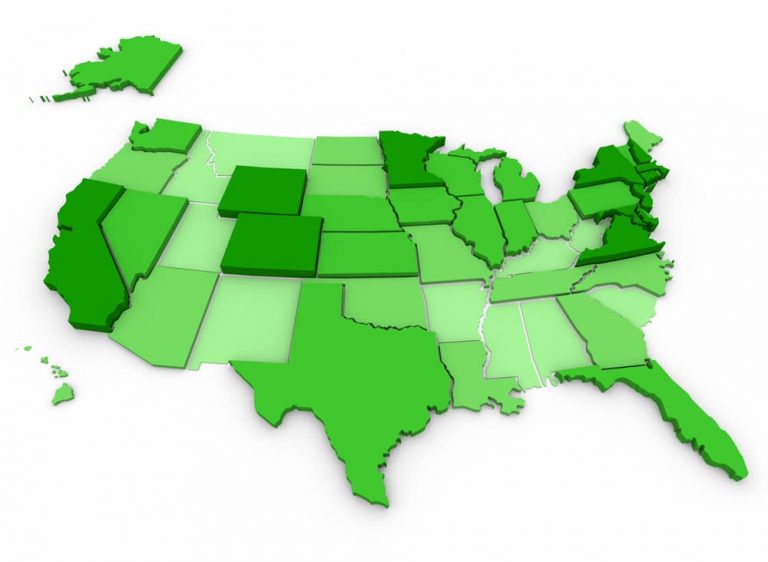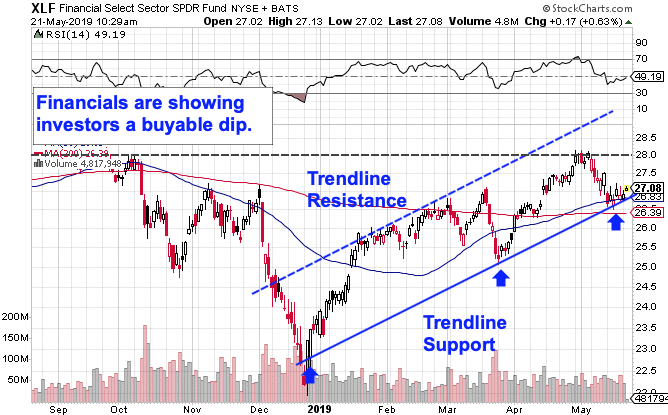How to retire early: Early retirement by the numbers


More and more, I’m meeting people who want to know how to retire early. There’s been a lot of buzz in the media lately about early retirement, and that’s led folks to wonder how much money they would need to quit their jobs — or if early retirement is even something they should consider.
Why retire early? Well, for most people a job is a necessary evil. We work because we have to. Early retirement gives us the flexibility to choose how we spend our time, whether that entails sitting on the beach drinking margaritas or it leads to new work that provides meaning and fulfillment.
Lots of us dream of leaving the workplace in our forties or fifties instead of sticking it out until age 65 — but we keep working to support the lifestyles to which we’ve become accustomed. We like our iPhones and Playstations and Priuses, so we surrender to the idea that we’ll have fifty-year careers.
Still, there are a surprising number of folks who manage to retire young. In fact, the 2018 EBRI Retirement Confidence Survey found that 35% of retirees left the workforce before they turned 60. (Previous surveys have shown that 18% of people retire by age 55.)
These folks aren’t lucky lottery winners, and most didn’t have high-paying careers. In general, those who manage to retire early have opted to live with less when they’re younger so they can obtain financial freedom before they’re too old to enjoy it.
Early retirement is a fantastic goal, but it can be tough to achieve. Three major obstacles stand in your way:
- You have less time to earn money. If you start working at 20 and retire at 65, you have 45 income-producing years. But if you retire at 45, you only have 25 income-producing years.
- You spend more time living on your savings. Life expectancy for the average American is nearly 80 years. If you retire at 65, your savings will probably have to last only ten to twenty years; if you retire at 45, your savings may need to support you for thirty or forty years.
- You don’t enjoy traditional retirement benefits. If you retire young, you can’t access Social Security or Medicare for several years — or decades. You also face penalties if you choose to access your retirement accounts before you reaching minimum age requirements. (I’m experiencing issues with this gap already!)
In short, early retirees have less time to make money, and that money has to last them longer. Even if you stay healthy and the economy cooperates, that’s asking a lot.
That’s not to say you shouldn’t plan to retire early — it’s a laudable goal, one that I encourage here at Get Rich Slowly — but if you’re serious about doing so, you need to be diligent. You need to have a plan. And you need to understand the numbers.
Let’s take a look at the basics of how to retire early — and why you might want to do so.

Why Retire Early?
Before we dive deep into the numbers, let’s get a little philosophical. Why would somebody want to retire early in the first place?
Honestly, the reasons people pursue this goal are many and varied. The answers are as individual as we are. However, I’ve noticed some common themes.
Reading the financial independence forum on Reddit, you might think that most people want to retire early because they’re trying to escape from something. They hate their jobs. They hate where they live. They hate their lives. And yes, there are plenty of people who are hoping early retirement will solve their problems. (Hot tip: It won’t.)
I believe people are much more successful (and happier) if instead of running from something, they run toward a goal instead. In the case of early retirement, that means being motivated by a carrot instead of a stick.
Don’t chase financial independence because you want out of a bad job. Chase it because you want to obtain something worthwhile. Here are a few of the many reasons people reach toward early retirement:
- Fun. Traditionally, people have wanted to retire early so that they can enjoy life. They think they’ll play golf or tennis. They think they’ll buy a beach house and go fishing every day. They think they’ll do whatever they want, whenever they want. (Fun can absolutely be a big part of early retirement, but most successful early retirees find they want more out of life.)

- Freedom. If you’re able to retire early, you have the freedom to pursue other passions. You can travel. You can volunteer. You can spend time with your family. You can even find work you were meant to instead of work you have to do. (Some folks argue that if you’re working at all, you’re not retired. They’re wrong.)
- Fulfillment. Many people — and I’m one of them — choose to retire early so that they can turn their attention to more fulfilling endeavors. What this means differs with each person. For some, fulfillment comes from being able to watch their children grow. For others, it comes from starting a business. And still others discover meaning in writing books, teaching classes, hiking across the country, and so on.
The bottom line is that the “why” doesn’t really matter — as long as you have one. From what I’ve seen, you’ll probably be happier (and more successful) if you’re working toward something rather than trying to escape something. But even escape can be a valid reason to retire early.
The Extraordinary Power of Saving
Here’s the fundamental thing you need to know about early retirement: The more you save, the sooner you can retire. Obvious, right? Maybe so, but just because it’s obvious doesn’t mean it’s easy.
 Most financial advisers urge their clients to save around ten percent of their income for retirement. Bold advisers recommend saving as much as twenty percent. These numbers are safe. They’ll get you to retirement at age 65 without making many sacrifices along the way. The downside, however, is that by saving only ten or twenty percent of your income, you’re tacitly agreeing to spend forty or fifty years “working for the man”.
Most financial advisers urge their clients to save around ten percent of their income for retirement. Bold advisers recommend saving as much as twenty percent. These numbers are safe. They’ll get you to retirement at age 65 without making many sacrifices along the way. The downside, however, is that by saving only ten or twenty percent of your income, you’re tacitly agreeing to spend forty or fifty years “working for the man”.
A growing number of people have realized that they don’t want to work for fifty years. They want to trade the commute, the co-workers, and the hassle for something more meaningful. These folks have crunched the numbers and seen that if they’re able to increase their saving rate, they can retire sooner.
Consider the following shockingly simple math:
- With a 10% saving rate, you’ll need to work 50 years before you’ve saved enough to retire. (If you start working at 21, you can be done by the time you’re 71.)
- With a 20% saving rate, you’ll need to work 37 years before you’ve saved enough to retire. (If you start working at 21, you can be done by the time you’re 58.)
- With a 35% saving rate, you’ll need to work 25 years before you’ve saved enough to retire. (If you start working at 21, you can be done by the time you’re 46.)
- With a 50% saving rate — if you save half of everything you earn — you’ll only need to work for 17 years before you’ve saved enough to retire. (If you save half your income from age 21, you can retire by the time you’re 38.)
- If you’re able to achieve a mind-boggling 70% saving rate — I know people who have done this! — you’ll have enough saved to retire in less than nine years. (If you managed to do this from age 21, you could retire by 30.)
I’ll be honest: I used to think numbers like this were crazy. I could barely save fifty bucks a month. How was I going to save half my income?
In the twelve years that I’ve been writing about money, I’ve come to understand that high saving rates aren’t crazy — they’re just rare. Over the years, I’ve talked with many people who purposefully seek high-paying jobs, find ways to slash costs, or (most often) do both. There are plenty of people who choose to forego the modern American lifestyle in order to achieve something more important.
My ex-wife, for instance, has always been a super saver, and is currently setting aside more than one-third of her income. She’s not a tech bro. She started her career as a schoolteacher, and now she’s a forensic chemist. She’ll retire in a few years at age 52. I know another fellow who set a goal to retire by 40 — and did so. And I’ve met a few dedicated souls who saved so much so quickly that they achieved financial independence by the time they turned thirty.
For more early retirement stories, check out this Life magazine article from 1957 about what early retirement was like sixty years ago.
How to Save Half Your Income
According to the 2016 edition of the Retirement Confident Survey, 22% of workers save one-fifth of their household income for retirement. Four percent of workers save at least half their income.
If you believed the doom and gloom in the mass media, you’d think saving half your income was impossible. It’s not. You probably know a dual-income couple who saves half what they earn (or close to it) by socking away one partner’s paycheck. They live on one income and save the other for the future.
When I was younger, for instance, two of my close friends got married. He worked as an accountant; she taught grade school. From the start, they lived on only his paycheck. This put them in an excellent financial position when they decided to have a family. She was able to quit to become a full-time mother. Meanwhile, their spending was already comfortably within the husbands income.
If you’d like to boost your saving rate — whether it’s to retire early or to obtain any other financial goal — I recommend a two-pronged attack.
First, minimize spending. Two expenses consume half of the average American budget. Pursue these first (and with greatest vigor).
The number one way to cut costs is to pay less for housing. The average American spends one-third of her budget on a place to live. But, as you’ve probably noticed, average Americans don’t retire early. I urge folks to spend no more than 25% of their income on housing — and less is better. Choose a home in an area with a low cost of living.
Reject the advice to “buy as much home as you can afford”. Buy as little as you need. Take out a small mortgage at a low interest rate. Repay it as quickly as possible. Lastly, don’t be afraid to rent. Despite what you’ve heard, renting is not throwing your money away. Often it’s a smart move!
Transportation is the second-largest expense for the average American. The more you can reduce your use of motor vehicles, the more money you’ll save. Choose to live in a walkable neighborhood. (Before moving to our current house, I walked for 80% of my errands, which provided added health benefits.) If possible, bike to work. Use public transportation. Reject the notion that your car is a status symbol. When you buy, choose a fuel-efficient used model and drive it until it’s dead.
Cutting costs on housing and transportation will have as much impact as everything else you do combined. Big wins are the cornerstone of financial freedom. Yes, it’s great to clip coupons, to grow a vegetable garden, to shop at thrift stores, and so on. But recognize that these actions net you pennies at a time while tackling the two biggest items in your budget could yield hundreds (or thousands!) of dollars in one blow.
Many folks frown on this sort of frugality. They view it as sacrifice. They feel like they’re depriving themselves. I disagree. Saving is not sacrifice. When I save for retirement, that money is still spent. But I’m choosing to spend it on freedom tomorrow instead of fun today.
The second piece of our two-pronged attack is perhaps most important: Maximize your income. It’s great to cut expenses and develop thrifty habits, but there’s only so much fat you can trim from your budget. In theory, there’s no limit to how much you can earn. If you want to retire early, you’ll probably want to make more money.
- Your job is your most important asset. Treat it as such. Negotiate your salary, learn new skills, connect with colleagues, and actively manage your career.
- Become better educated. In the U.S., education has a greater impact on lifetime earnings than any other demographic factor. Your age, race, gender, and location all influence what you earn, but nothing matters more than what you know.
- Sell your stuff. It’ll improve both your mental and financial health.
- Start a side gig. Make money from your hobby. Take a second job.
To be blunt, most people who read this article won’t do any of these things. They won’t look for a cheaper place to live, won’t find ways to drive less, won’t increase their income. They want easy, painless shortcuts, and that’s fine. But they can’t expect to have their cake and eat it too.
There are no easy, painless shortcuts to early retirement. If you want to quit working before you’re old, you must boost your saving rate. There are only two ways to do that: earn more or spend less. That’s the basic rule of personal finance.
However, a handful of readers will heed my advice. Maybe one of them is you!
You’ll make some big changes to create a high saving rate. You’ll learn how to invest wisely. You’ll build a wealth snowball that grows faster and faster as you add to it, one that also gains momentum through compounding.
What about debt? If you follow this roadmap, you don’t have to worry about it. Even if you start the journey owing money on college loans or credit cards, that debt will disappear. Debt reduction is a side effect of boosting your saving rate.
How to Retire Early
 At some point, your wealth snowball will be so large that it can last the rest of your life. You’ll never have to work for money again unless you choose to. At this crossover point, your investment returns produce more than you spend.
At some point, your wealth snowball will be so large that it can last the rest of your life. You’ll never have to work for money again unless you choose to. At this crossover point, your investment returns produce more than you spend.
Realistically speaking, it’s important to have a margin of safety. To that end, I make the following assumptions when I calculate whether somebody is ready to retire:
- You’ll spend as much in the future as you do now. (About 38% of people spend more, 21% spend less, and 38% spend the same.)
- If you withdraw about 4% from your savings each year, your wealth snowball will maintain its value against inflation. During market downturns, you might need to withdraw as little as 3%. During flush times, you might allow yourself 5%. But around 4% is generally safe.
Based on these assumptions, there’s a quick way to check whether early retirement is within your reach.
Multiply your current annual expenses by 25. If the result is less than your savings, you’ve achieved financial independence — you can retire early. If the product is greater than your savings, you still have work to do. (If you’re conservative and/or have low risk tolerance, multiply your annual expenses by 30. If you’re aggressive and/or willing to take on greater risk, multiply by 20.)
The numbers behind early retirement really are this basic. But, as I said earlier, just because the math is simple doesn’t mean the goal is easy to reach. Smart money management is more about mastering your personal psychology and emotions than it is about undestanding a couple of formulas.
To build your wealth snowball, you need to learn to live by your values rather than the values of your friends and family. (Or, worse, the values portrayed in the media.) You need to decide what’s important for you. If you remain focused on why you’re choosing to live on less, the “how” becomes easier to see. (Here’s how to write a personal mission statement.)
Yes, you can achieve early retirement. Others have done it, and you can too. The question is: What are you willing to do in order to reach that goal?
Author: J.D. Roth
In 2006, J.D. founded Get Rich Slowly to document his quest to get out of debt. Over time, he learned how to save and how to invest. Today, he’s managed to reach early retirement! He wants to help you master your money — and your life. No scams. No gimmicks. Just smart money advice to help you reach your goals.









